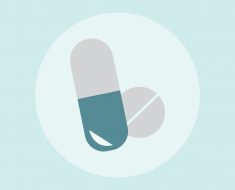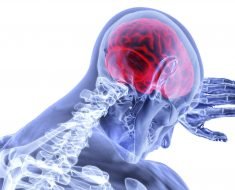Hyperinsulinemia is a condition where the blood insulin level is higher than what is considered normal in people without diabetes. Although hyperinsulinemia is not diabetes, the condition is often associated with type 2 diabetes. People with hyperinsulinemia have difficulty maintaining a normal blood sugar level, which means the pancreas has to produce increasing amounts of insulin in order to control it.
Causes of Hyperinsulinemia
Insulin is a hormone made in the pancreas by cells called islets or islets of Langerhans, which regulates the amount of glucose in the blood. The primary cause of hyperinsulinemia is insulin resistance, which occurs when the insulin level remains high enough over a long period for the body to become less sensitive to the hormone.
This means that the body’s usual response to a given amount of insulin is decreased, which results in the pancreas secreting higher levels of insulin in order for the hormone to exert its usual effects. The pancreas produces increasing levels of insulin until eventually it can no longer produce enough to meet the body’s needs. This leads to a rise in the blood sugar level and insulin resistance is therefore a risk factor for the development of diabetes.
In rare cases, hyperinsulinemia may be caused by the presence of a tumor in the insulin-producing islets of Langerhans. This tumor is referred to as an insulinoma. Another rare cause is a condition called nesidioblastosis, a genetic disorder where abnormal islets of Langerhans produce an excess of insulin, which is usually seen in newborns.
The incidence rates of nesidioblastosis in adults is believed to be low, and its causes in adults is unknown. It is important to note the term ‘nesidioblastosis’ is controversial. It was used in the 1970s to the 1980s to describe the pancreatic dysfunction in congenital hyperinsulinism. However, it was later discovered that the characteristic tissue features of nesidioblastosis were also found in children and adults with normal pancreatic function, and therefore could not be consistently associated with hyperinsulinemic hypoglycaemia. Now, it is used to describe an acquired form of hyperinsulinism that is associated with gastrointestinal surgeries.
Why Does Insulin Resistance Occur?
Insulin resistance may occur in response to the body’s endogenous insulin or exogenous insulin given via injection. Insulin resistance is closely associated with inflammation and is thought to be caused by cytokine release disrupting the usual action of insulin. The chronic inflammation seen in obesity can therefore increase the risk of type 2 diabetes.
Symptoms of Insulin Resistance
One of the first symptoms to develop is weight gain, particularly around the abdominal area. Further symptoms include:
- Hunger
- Difficulty concentrating
- Lethargy
- High blood pressure.
Symptoms of Insulinoma
The most common symptoms of insulinoma are caused by changing insulin levels that suddenly lead to altered blood sugar levels. These symptoms usually occur when the blood sugar level is low:
- Sweating
- Weakness
- Confusion
- Blurred vision
- Forgetfulness
- Nausea
- Light-headedness
- Palpitations
- Hunger
- Fatigue.
If people do not eat something while their blood sugar is low, they are at risk of falling unconscious. In some cases, insulinomas do not initially lead to an excess production of insulin and the subsequent symptoms. These tumors are referred to as non-functioning tumors, and may only cause symptoms once they have spread or have grown in size enough to press on surrounding organs, or, if they start producing hormones that affect how other organs work. Symptoms that may occur in the case of non-functioning tumors include:
- Pain in the back or abdomen
- Diarrhea
- Jaundice.
Symptoms of Nesidioblastosis
The five main symptoms of this congenital disorder are:
- Severe neonatal hypoglycemia
- Raised blood insulin
- Loss of consciousness
- Lack of urinary ketones
- Low blood sugar level.
Complications of Hyperinsulinemia
A number of complications may occur as a result of having hyperinsulinemia, including:
- Increased uric acid level
- Raised triglycerides
- Atherosclerosis
- Weight gain
- Hypertension
- Type 2 diabetes.
The earlier a person with hyperinsulinemia is diagnosed, the more likely it is that the above complications can be prevented or the extent of these complications can be reduced.
Primary Hyperinsulinemia
Primary hyperinsulinemia causes hypoglycemia in infants and children and is the most common cause of hypoglycemia in neonates. The condition is estimated to affect one in 50,000 newborns in the U.S.
Clinical presentation depends on the age of the child. Symptoms in infants may include sweating, lethargy, hypothermia, cyanosis, respiratory distress, irritability, jitteriness, seizures, tachycardia, poor feeding, and vomiting.
In older children, symptoms may include anxiety, hunger, shakiness, sweating, increased appetite, lethargy, nausea, vomiting, lack of concentration, tachycardia, seizures, hypothermia, fainting, headache, and changes in behavior.
Transient hyperinsulinemia is usually caused by factors such as birth asphyxia or maternal diabetes. However, if the hyperinsulinemia persists, it may be due to a genetic defect that leads to increased insulin secretion.
Sources
- http://emedicine.medscape.com/article/921258-overviewhttp://www.diabetes.co.uk/hyperinsulinemia.html
- http://www.diabetes.co.uk/insulin-resistance.html
- www.sciencedirect.com/…/nesidioblastosis
- www.cancerresearchuk.org/…/insulinomas
- www.mayoclinic.org/…/faq-20058488
- www.medicinenet.com/…/article.htm#what_is_insulin_resistance
Further Reading
- All Hyperinsulinemia Content
- Hyperinsulinemia – What is Hyperinsulinemia?
- Hyperinsulinemia Treatments
Last Updated: Feb 26, 2019

Written by
Sally Robertson
Sally has a Bachelor's Degree in Biomedical Sciences (B.Sc.). She is a specialist in reviewing and summarising the latest findings across all areas of medicine covered in major, high-impact, world-leading international medical journals, international press conferences and bulletins from governmental agencies and regulatory bodies. At News-Medical, Sally generates daily news features, life science articles and interview coverage.
Source: Read Full Article





